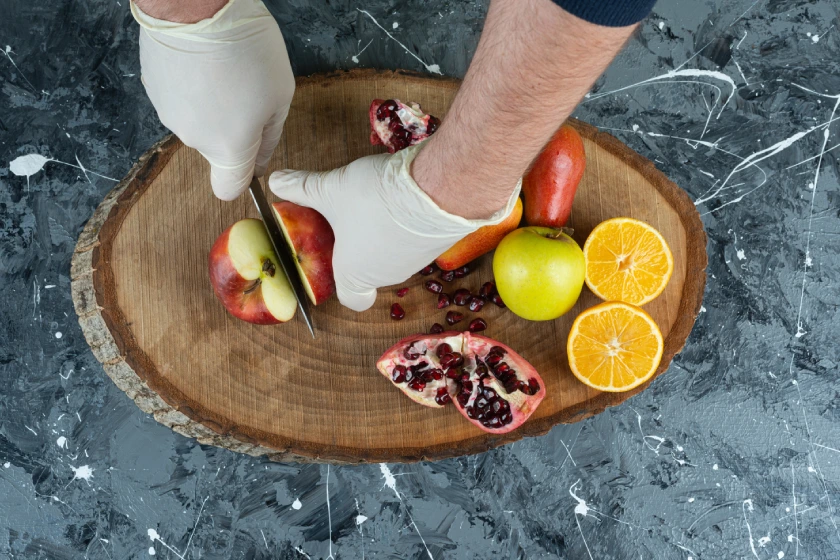
Most people know that varicose veins are caused by weak or damaged vein valves, but very few realise how much food choices influence this condition. The veins in your legs carry blood back to the heart against gravity, and the strength of these veins depends not only on medical factors but also on your overall lifestyle, including your diet.
The right varicose veins diet can support healthy circulation, reduce swelling, and strengthen vein walls, while poor eating habits can make symptoms worse. By understanding the link between nutrition and vascular health, you can take simple steps every day to ease discomfort and prevent complications.
What are Varicose Veins?
Varicose veins are swollen, twisted, and enlarged veins that usually appear on the legs. They happen when valves in the veins fail to close properly, causing blood to pool instead of flowing smoothly back to the heart.
This pooling leads to bulging veins, aching legs, heaviness, swelling, and sometimes skin discoloration or ulcers. For many, varicose veins are not just a cosmetic issue but a real health concern that needs medical attention. Visiting a varicose vein hospital or consulting a varicose vein doctor is crucial if the condition worsens.
How Diet Impacts Varicose Veins
Your diet influences your blood circulation, vein strength, and overall vascular health. Eating foods rich in fiber, antioxidants, and flavonoids supports healthy blood flow and reduces vein pressure. On the other hand, diets high in salt, sugar, and unhealthy fats can worsen swelling, increase inflammation, and strain your veins.
Best Foods to Eat for Varicose Veins
If you are looking for the best diet for circulation, here are foods that can make a big difference:
High-Fiber Foods
Whole grains, oats, lentils, beans, and fresh vegetables help prevent constipation. This reduces strain on leg veins and supports smoother blood flow.
Fruits Rich in Flavonoids
Berries, citrus fruits, apples, and cherries improve vein elasticity and reduce blood pressure in the veins. These are some of the best foods for varicose veins.
Leafy Greens
Spinach, kale, and broccoli are packed with antioxidants and vitamins that fight inflammation and strengthen vein walls.
Foods that Increase Blood Flow
Garlic, ginger, turmeric, beetroot, and dark chocolate are excellent for circulation as they promote vasodilation and prevent blood clotting.
Omega-3 Rich Foods
Fatty fish like salmon, walnuts, chia seeds, and flaxseeds improve circulation and reduce vein inflammation.
Hydrating Foods
Cucumbers, watermelon, and oranges keep you hydrated and reduce fluid retention, a common issue with varicose veins.
Foods to Avoid (or Limit)
Just as the right food helps, the wrong choices can worsen varicose veins. Here are some foods to watch out for:
Excess Salt
Too much sodium causes water retention and leg swelling, which increases pressure on the veins.
Processed and Junk Foods
Packaged snacks, fast food, and fried foods are high in trans fats and sugar, which weaken blood vessels and increase inflammation.
Alcohol
Drinking too much alcohol dehydrates the body, dilates blood vessels, and worsens vein problems.
Refined Carbs and Sugary Foods
White bread, pastries, and sweets spike blood sugar, leading to weight gain and added stress on the veins.
Diet Tips for Healthy Veins
Drink at least 8 to 10 glasses of water daily for better hydration and circulation.
Eat smaller, balanced meals instead of heavy portions that put pressure on your digestive system and veins.
Include colorful vegetables and fruits in your diet to get a wide range of antioxidants.
Maintain a healthy body weight to reduce pressure on your legs.
Combine a healthy diet with daily walking or light exercise to enhance blood flow.
Conclusion
Varicose veins are not entirely preventable, but over the years, I have seen how much a person’s diet can influence the severity and progression. The right foods can improve circulation, reduce swelling, and strengthen your veins, while poor choices often make the condition worse.
That said, I must emphasize that diet alone cannot reverse varicose veins. If you are experiencing persistent swelling, pain, or skin changes, please do not ignore these signs. Early consultation is the key. Today, we have advanced treatments, including minimally invasive procedures and varicose vein surgery, that offer excellent results with faster recovery.
As a varicose veins surgeon, my focus has always been on providing a comprehensive approach — combining lifestyle guidance, dietary changes, and the latest medical techniques. With the right care, you can protect your veins, improve your comfort, and most importantly, prevent complications in the future.
Frequently Asked Questions
Foods high in salt, sugar, trans fats, and processed ingredients should be avoided as they cause inflammation, swelling, and poor circulation.
Berries, oranges, cherries, and apples are excellent because they are rich in flavonoids and antioxidants that support vein health.
No. A healthy diet can improve circulation and reduce symptoms, but advanced varicose veins often require medical treatment or surgery.
Yes. Staying hydrated reduces swelling, supports smooth blood circulation, and prevents fluid retention in the legs.
Moderate coffee consumption is usually fine, but excess caffeine may cause dehydration and strain circulation, so it is best to limit intake.

Dr. Sumit Kapadia
MBBS, MS, MRCS, DNB-Fellow



